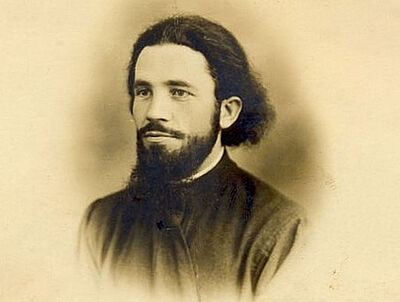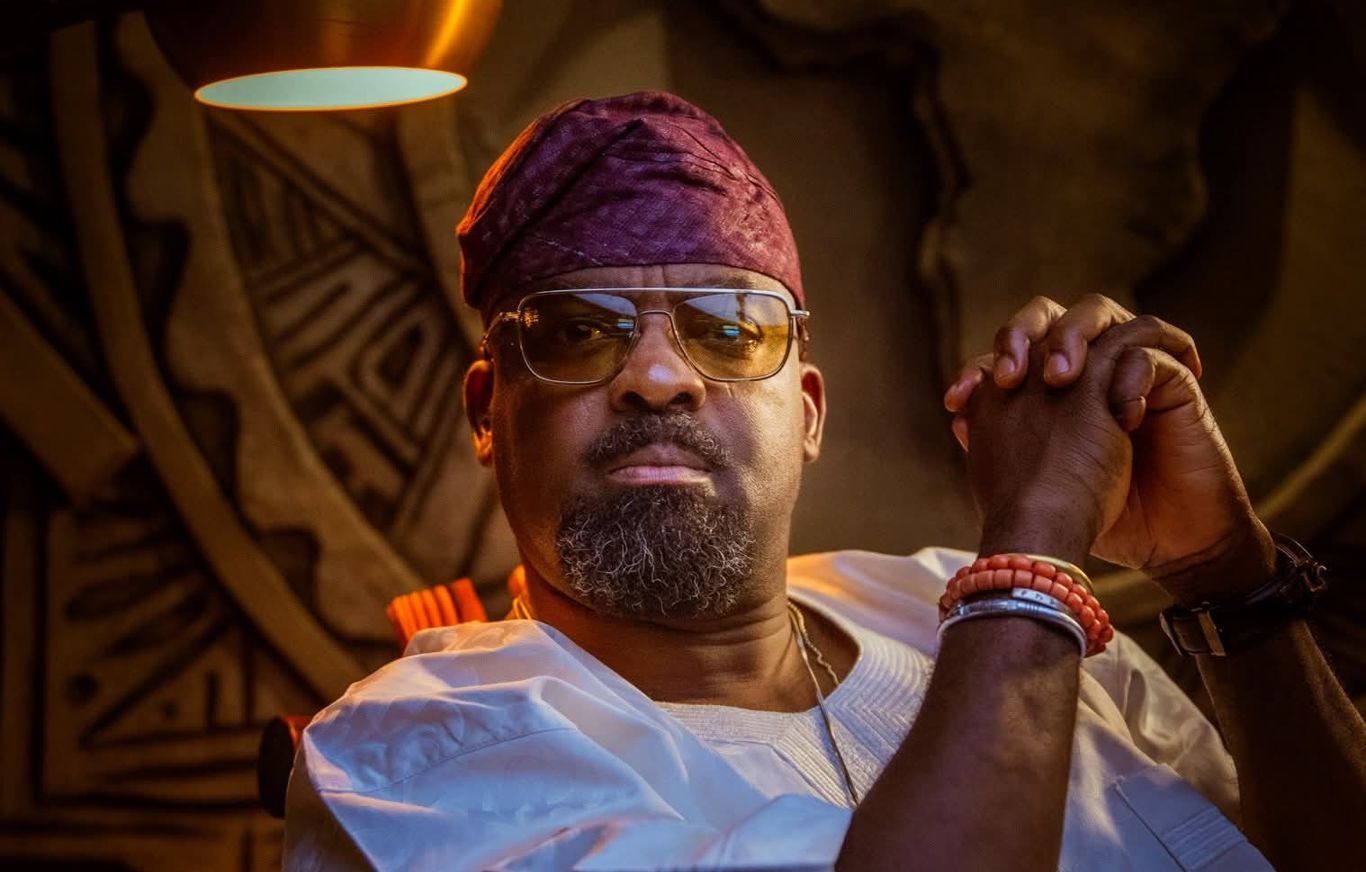Archimandrite Gherasim (Iscu) On July 11–12, 2024, by the decision of the Holy Synod of the Romanian Orthodox Church, sixteen saints of God who shone forth in the twentieth century were canonized. One of them is  Archimandrite Gherasim (Iscu), Hesychast of the Communist DungeonsAnd then I saw a miracle. I saw how a half-dead priest, standing on the threshold of death, beckoned for two prisoners. Leaning on their backs, he slowly walked past my bunk, sat down on the edge of the bunk of the man who had tortured him, and started stroking his head.
Archimandrite Gherasim (Iscu), Hesychast of the Communist DungeonsAnd then I saw a miracle. I saw how a half-dead priest, standing on the threshold of death, beckoned for two prisoners. Leaning on their backs, he slowly walked past my bunk, sat down on the edge of the bunk of the man who had tortured him, and started stroking his head.
“>Archimandrite Gherasim (Iscu; 1912–1951), Abbot of Tismana Monastery, who will henceforth be venerated as the Venerable Martyr Gherasim of Tismana, and his feast will be celebrated on December 26.
The author of these lines, Ioan Ianolide, was also a great confessor of Christ. He spent the best period of his life, from the age of twenty-one to forty-five, in prison for his faith and was released when very disabled. Being persecuted, he secretly compiled memoirs with great difficulty, an extract from which you, dear readers, will have a chance to read now.
It was the winter of 1951. The  The Nativity of Our Lord and Savior Jesus Christ
The Nativity of Our Lord and Savior Jesus Christ
“>Nativity of Christ was approaching. We were in the prison sanatorium (Târgu Ocna), a modern sanatorium designed to embellish the terrible reality of prisons. Local tuberculosis patients (consumptives), too, lived with memories of the prisons of Pitesti, Gherla, the Danube–Black Sea Canal, salt mines and death camps.
We had enough food, but the bacilli nesting in the cavities of our lungs no longer accepted it. We were allowed to go out into the courtyard, but it was surrounded by two rows of strictly guarded walls. They didn’t beat us anymore, but they threatened to send us back to Pitesti or to the canal for any pretext. There was a strong spiritual unity between us, but there were also many stool pigeons who came from Pitesti and other places where terror was being whipped up.
We were at a sanatorium, but there was no medicine for us there, except in the wall newspaper. There was also a female doctor who kept us under observation, but she was alone, and there were hundreds of patients, and two or three would die every day. In a box, in the same dirty box, all the deceased were taken to the common cemetery—without a cross, without a priest. We were not allowed to pray even when someone was dying. We had no right to light a candle, to perform our thousand-year-old custom. We had no contact with our families and heard no news from the world. Only once every six months or once a year did we learn about some important political event that had taken place…
 The prisoners’ castle. The plan of the Târgu Ocna Prison hospital, 1856
The prisoners’ castle. The plan of the Târgu Ocna Prison hospital, 1856
We were languishing there, locked in cells, without any hope of liberation, more dead than alive, cut off from the world and terrorized. Many were bedridden and disabled. These were kept in cells on the ground floor, and we, who were healthier and lived on the first and second floors, organized a volunteer program to help them. We did it with full dedication, to the point of emaciation. And the tuberculosis patients reciprocated the love with which we cared for them with the same love, gratitude and kindness, refuting the hackneyed idea of the selfishness of consumptives, which had become the talk of the town.
We fed them, washed them, cleaned up after them; in other words, we satisfied all their needs. Their hoarse, dry coughs were heard all the time, and they were echoed by the strange hooting of owls. Their blood spitting was heartbreaking, often unstoppable, tormenting both the patients and their inexperienced “orderlies”. We learned to determine how long each of them had to live judging by their faces, smells, and general tones without any medical diagnoses.
Cells numbers three and four were for “death row” patients. Most inmates died in them. We were on duty there around the clock. And since I was listed as a partially fit prisoner, I insisted on being on duty in cell number four on Christmas Night.
 The surroundings of the town of Targu Ocna. Photo: Cnipttirguocna.ro
The surroundings of the town of Targu Ocna. Photo: Cnipttirguocna.ro
The winter was serene, snowy, and not frosty. The hills around were covered with white snow. The bells of the skete announced the prayers of the monks to us, and with all our Christian breath we united with them in silent prayer. It is impossible for soundless prayers offered up to Heaven by people trapped between death and torture not to be accepted. They were heard in Heaven, they brought Heaven down to earth, and I believe God will have mercy on this world and those great believing souls who languished in Targu Ocna Prison.
 The new Magura Ocnei Skete, set up in 1990-1997 on the site of the older one destroyed in 1964. Photo: Zigzagprinromania.com
The new Magura Ocnei Skete, set up in 1990-1997 on the site of the older one destroyed in 1964. Photo: Zigzagprinromania.com
Fr. Gherasim (Iscu)’s blessed repose
and the conversion of a Jew to the Christian faith
At that time, Archimandrite Gherasim (Iscu) was kept in cell number four, along with a Jew—a former Soviet political instructor, and now a Zionist, and lastly, with Ion, my friend from Pitesti Prison, who was already very ill. On the right side of the cell,  A Contemporary Confessor and Martyr for Christ: Valeriu GafencuAmong the many portraits of the confessors, one will be found in particular that is recalled with reverence by all and is considered a saint: Valeriu Gafencu. Nicknamed “the saint of the prisons” by Father Nicolae Steinhardt in a truly inspired moment, Valeriu Gafencu was one of the more impressive figures who lived an admirable spiritual life amidst prison conditions.
A Contemporary Confessor and Martyr for Christ: Valeriu GafencuAmong the many portraits of the confessors, one will be found in particular that is recalled with reverence by all and is considered a saint: Valeriu Gafencu. Nicknamed “the saint of the prisons” by Father Nicolae Steinhardt in a truly inspired moment, Valeriu Gafencu was one of the more impressive figures who lived an admirable spiritual life amidst prison conditions.
“>Valeriu, my precious brother, was lying on a bunk.
The conditions of Ion and Fr. Gherasim were critical. Valeriu got a little better, and after the usual prayer rule he was now trying hard to compose several verses as his testament. He also wanted to compose a special Christmas carol in honor of Targu Ocna that evening.
I quietly approached Fr. Gherasim who was lying with his eyes closed. He was thin, skin and bone, like a ghost. He had gone through the Danube–Black Sea Canal where they had labored for sixteen hours a day, followed by another four hours of administrative workload. He had been sent to a special brigade for priests with a “rapid extermination regime”. At the Canal, Fr. Gherasim had encouraged his friends, helped many with their work and was available to all who sought him as a priest.
He performed the prayer of the heart and possessed enormous spiritual resources that allowed him to overcome all adversities. But the stool pigeons informed on him several times that he heard people’s confessions, and for this he was beaten, kept in isolation, starved, and terrorized in addition to the usual general terror. But man is made of flesh and bones, the spirit cannot ignore the laws of life, and this ascetic, full of virtues, contracted tuberculosis and was brought, more dead than alive, to Targu Ocna to die “humanely”.
 Ioan Ianolide His presence in the sanatorium was felt by the skill with which he was able to see through people in spirit and strengthen them. He was a very sought-after spiritual father. He gladly devoted himself to the inmates who sought him, even though it exhausted him. He also gave hesychastic instructions: not only from what he had read, but also from his rich ascetic experience…
Ioan Ianolide His presence in the sanatorium was felt by the skill with which he was able to see through people in spirit and strengthen them. He was a very sought-after spiritual father. He gladly devoted himself to the inmates who sought him, even though it exhausted him. He also gave hesychastic instructions: not only from what he had read, but also from his rich ascetic experience…
So, I came up to him timidly to see how he was feeling. He sensed me and opened his big, black, deep eyes:
“Is that you?… I’m glad… And I was far away, in places full of greenery, songs and fragrances made of light. It’s wonderful there. There’s a world out there. In fact, it is impossible to express what is there. There is so much bliss there that even the joy of seeing you is suffering by contrast between these two realms. I’ll depart soon—maybe right now, on Christmas Night. And this is a gift from God. I don’t know how to thank Him.… I do not know how to make people feel God and full joy… I am convinced of the existence of eternal life—I am already its partaker. I am not afraid of the Judgment, for I am dying with humble thoughts and trust in God’s mercy and grace alone… The spirits of darkness rule over people now, but do not fear—Christ is close, He is testing people; and people need to suffer much.… The enemies believe that we have been defeated, but they deny God’s work in history and do not know His ways…”
He stopped for a bit, took a deep gasp of breath, and then proceeded:
“Someday there will be a pilgrimage site here… There are few of us today, but there is still faith in the world, so the world will be saved. It seems impossible now, but apart from human means, there is Divine Providence, and it will revive humanity. Be blessed! I have known people here, before whom my mind humbles itself. Ask Valeriu to pray for me.… And you pray, too! I am happy that I have reached this hour.”
 The town of Târgu Ocna. On the hill in the center is the Magura Ocnei Skete. Photo: Cnipttirguocna.ro
The town of Târgu Ocna. On the hill in the center is the Magura Ocnei Skete. Photo: Cnipttirguocna.ro
He spoke softly, but with such power that it made me tremble. Then he closed his eyes again and approached the threshold of eternal life.
The Jew Jacob (Yakov), who occupied the neighboring bunk, listened to my conversation with Fr. Gherasim involuntarily yet attentively. I touched his forehead:
“Do you have a fever?” I wondered.
“No,” he replied. “I feel well. There’s a world here that I didn’t even know existed. In any case, it’s an absolute opposite to the world I come from. It is a shock for me to find myself back in the Christian atmosphere, which I have stubbornly rejected all my life: first with my materialism, and then with Zionism. Christmas Night, which has always caused exasperation in my heart, is captivating me today with its Divine reality. Because what is happening here is not human or natural, but God’s work. A materialist, an atheist and a Jew is telling you this!… And my confession is not some farce. In the face of death, people become sincere and have a chance to see the truth. You may be surprised by my confession, but it was slowly maturing in me, against my will, as an unavoidable recognition of reality. The real God is Christ!”
Saying these words, he burst into tears. He was deeply moved. I tried to understand him and feel the dramatic moment that he was going through. He was silent for a while. I sat down on his bunk and took his hand into mine. And I prayed in my heart… What else could I do?!
I knew very well that I would not be able to understand his mental anguish, because I was born a Christian and had lived as a Christian all my life, while he was a Jew, then became a Communist, and now a Zionist. Such a soul goes through a terrible trauma every time it makes a new discovery in spirituality; and from now on, his Christian testimony turned into a categorical reversal of his entire past.
“Thank you for hearing me out,” he said after a while. “We may become brothers in Christ soon!”
“May God help you,” I answered him with feeling and rose to go to Ion.
Beautiful flowers from prisons
It became quiet, and I went up to Valeriu. He was leaning against the back of the bunk, with his head bowed on his chest and his eyes closed, but for some reason it seemed to me that he was looking at me. His blue eyes opened, huge and shining, and enveloped me in warmth. He smiled blissfully and said:
“It’s good that I feel you next to me! I’m about to finish composing a beautiful tune in honor of Targu Ocna.”
“Lie still,” I told him, and sat down on a bench to keep watch next to him.
 The Trotuș River flowing through the town of Targu Ocna. Photo: Cnipttirguocna.ro
The Trotuș River flowing through the town of Targu Ocna. Photo: Cnipttirguocna.ro
But he said:
“You will be the first to hear my Christmas kolyadka (carol).”
On the bank of the Trotuș
Servants of God are singing,
Those who bear His yoke.
But their singing is soundless,
For it is woven from great suffering
And watered with tears.
In the heart of the servant
The Lord is preparing a manger for Himself
On Christmas Night.
Lilies are falling from the skies
Onto His new manger,
With dew dripping from the flowers.
There is a baby standing further off
And looking in perplexity
At the prison window.
Next to the baby
An angel sits down
And whispers to him tenderly:
“Today Christmas has moved
From the palace to the prison,
Where the Lord is confined.”
And this baby from the distance
Came to prison
To celebrate the great feast.
Chorus:
Let children come
To bring to Me from the garden
White flowers of the feast,
White, white flowers!
He looked at me for a moment, and then added:
“I dedicate this Christmas kolyadka to Fr. Gherasim. He is the infant to whom its final verses refer.”
Valeriu was serene, bright and joyful. I thanked him for caroling for me. He smiled and withdrew into himself.
Such tranquility reigned in the air that I could hear the heavy breathing of the sick inmates, the falling of snowflakes outside the window and my heartbeat. In this revolting mixture of prison and tuberculosis a spiritual vibration was clearly sensed, so everything seemed otherworldly and miraculous…
Every now and then I approached Ion and Fr. Gherasim who were slowly fading away, getting closer and closer to death. Jacob was awake. I found him with his eyes open, but he didn’t tell me a word.
 Icon of St. Gherasim of Tismana Late at night, when dawn was breaking, I realized that I should prepare a candle stub and some matches. We were strictly forbidden to use them, but I would hide them in the mattress feathers and use them very sparingly—only for a couple of minutes every time one of us passed away.1
Icon of St. Gherasim of Tismana Late at night, when dawn was breaking, I realized that I should prepare a candle stub and some matches. We were strictly forbidden to use them, but I would hide them in the mattress feathers and use them very sparingly—only for a couple of minutes every time one of us passed away.1
Ion was the first to fall into eternal rest; he was like a baby, a man with such a great soul. His last gaze was very sad and full of love. Maybe there was prayer in it, or an instruction for us, or hope.
No sooner had I finished with Ion than Fr. Gherasim called me. He opened his deep, sunken eyes again:
“Let me look at you once again—my dear ones, my children, my brethren, my fathers!” He said gently. And then he coughed and added, “I’m passing into eternity! God bless you!”
He took a deep, quick breath, cowered for a moment, and fell asleep in the Lord. I closed his eyes.
I closed the eyes of hundreds of people, and I know better how they died than how they lived. Perhaps the moment of death says more to create a person’s portrait than his life.
Although it was a hard night and I didn’t rest at all, I didn’t feel fatigue, sadness, or regret. The reality of life was imbued with the reality of immortality.
At times I glanced at Valeriu. He was joyful, happy, sitting with his eyes closed, his head bowed on his chest and leaning against the back of the bunk. He couldn’t rest that night either.
When I finished preparing the bodies, he called me with his glance and said:
“The Christmas kolyadka is over… These verses will probably become my testament… Let’s carry on the faith, to the endless end!”
Stillness enveloped our cell again for a while. Prayer, like a celestial ladder, brought down angels from Heaven to earth. Heaven was here, Heaven was everywhere.2




